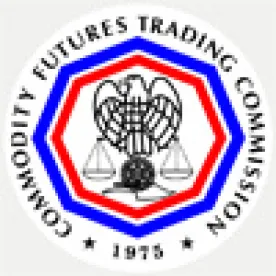On August 29, 2018, the U.S. Senate confirmed Dawn Stump and Dan Berkovitz as Commissioners of the Commodity Futures Trading Commissioner (“CFTC” or “Commission”). Each has extensive experience in the derivatives markets. Ms. Stump, among other things, has served as Executive Director and Senior Vice President of U.S. Policy for the Futures Industry Association. Mr. Berkovitz, among other things, served as General Counsel of the CFTC from 2009-2013. Ms. Stump and Mr. Berkovitz were sworn in last week, meaning the CFTC now has a full slate of Commissioners for the first time since 2014. Even without a full Commission, the CFTC under Chairman Giancarlo has undertaken various initiatives, including its regulatory simplification program Project KISS (which has led to several proposed and final rules), but now with a full Commission, it is likely that the CFTC will be able to move on several major rulemakings.
-
Swaps Regulatory Reform: Chairman Giancarlo has long been a critic of the current regulatory regime for swaps. As a Commissioner in 2015, he issued a white paper in which he criticized the CFTC’s implementation of the Dodd-Frank Act’s swaps trading reforms, stating that they were overly prescriptive and ignored fundamental realities of the swaps markets. This year, Chairman Giancarlo issued a second white paper, which repeated many of the criticisms in the 2015 white paper, and more broadly addressed other areas of reform in swaps regulation, including: (i) better addressing the risks related to the central counterparties that clear swaps; (ii) enhancing the reporting of swaps to increase transparency; (iii) better calibrating swap dealer risk measurements to ensure appropriate risk-based capital requirements; and (iv) providing relief for smaller financial end-users from uncleared margin requirements. Given that swaps regulatory reform has been a focus of Chairman Giancarlo’s for years, resulting in two white papers, issuing a proposed rule based on those white papers is likely to be a high priority.
-
Position Limits: The CFTC proposed and finalized a position limits rule that, pursuant to the Dodd-Frank Act, included position limits for swaps, in 2011. In 2012, a U.S. District Court vacated that rule. Nearly six years after that ruling, there have been several rounds of proposals and re-proposals, most recently in December 2016, but no final rule. Chairman Giancarlo has consistently committed to finalizing a rule, but has expressed a desire that a full Commission approve any final rule. Now, with a full Commission on board, a proposed rule is likely to be issued over the coming months. That rule will likely look different than the proposals that have come before it – then-Commissioner Giancarlo generally supported the December 2016 proposal, but noted that there remained areas that needed to be addressed, particularly with regard to the impact on hedging.
-
Cross-Border: Chairman Giancarlo has also been a vocal, longtime critic of the CFTC’s cross-border approach to swaps regulation, indicating that the CFTC’s overbroad approach has led to unnecessary market fragmentation, particularly in cross-Atlantic swaps cooperation. In recent speeches, Chairman Giancarlo has called for a “reset” in those relations, and announced a forthcoming white paper regarding reforming the CFTC’s cross-border rules that will focus on greater regulatory deference. As with swaps regulatory reform, cross-border reform is likely to be a high-priority, with proposed rules closely resembling the proposals laid out in the forthcoming white paper. In addition, the impact of Brexit on the current agreement between the U.S. and Europe related to clearinghouses will be an important component of the cross-border agenda. Chairman Giancarlo has repeatedly cautioned against the disruption of the current U.S.-EC Equivalence agreement for cross-border clearinghouses.
-
Swap Dealer De Minimis: After twice delaying the drop in the swap dealer de minimis threshold – the gross notional amount of swap dealing activity a firm could engage in before the firm is considered a “swap dealer” – from $8 billion to $3 billion, on June 4, 2018, the CFTC issued a proposed rule that would set the de minimis threshold at $8 billion, and establish certain exceptions to swaps counting towards that threshold. Chairman Giancarlo has stated his commitment to finalizing the rule before the end of the year. Commissioner Behnam dissented, arguing that finalizing the rule before the end of the year would be too aggressive, and that the proposal improperly uses the de minimis threshold to address swap dealing exclusions for swaps entered into by insured depository institutions in connection with loans to customers and physical hedging swaps.
-
Regulation Automated Trading (“Reg. AT”): Reg. AT, which as its name suggests would regulate automated trading, was first proposed in 2015, and supplemented in 2016 over then-Commissioner Giancarlo’s dissent. It has been highly controversial, especially the provisions that would give the CFTC access to firm’s source code. The CFTC issued a supplemental proposal in 2016. Chairman Giancarlo has said he is “open to considering whether there are elements in Reg. AT that could serve as the basis for a new and truly effective rule.” Thus, any rule along the lines of Reg. AT will look very different from prior proposals. Commissioner Behnam has stated that the CFTC “must prioritize this issue and take action before an automated trading system runs amok”; Commissioner Quintenz has called for the CFTC to discuss the “finite circumstances” in which automated trading activity poses a risk, and then “examine what, if any, additional regulatory solutions are necessary to address those concrete and specific instances.”We anticipate that the remainder of 2018 will yield several, substantive rule proposals by the CFTC with finalization of such rules during 2019. Covington’s Futures and Derivatives Practice stands ready to assist market participants on reviewing, commenting and implementing any new rule changes




 />i
/>i

